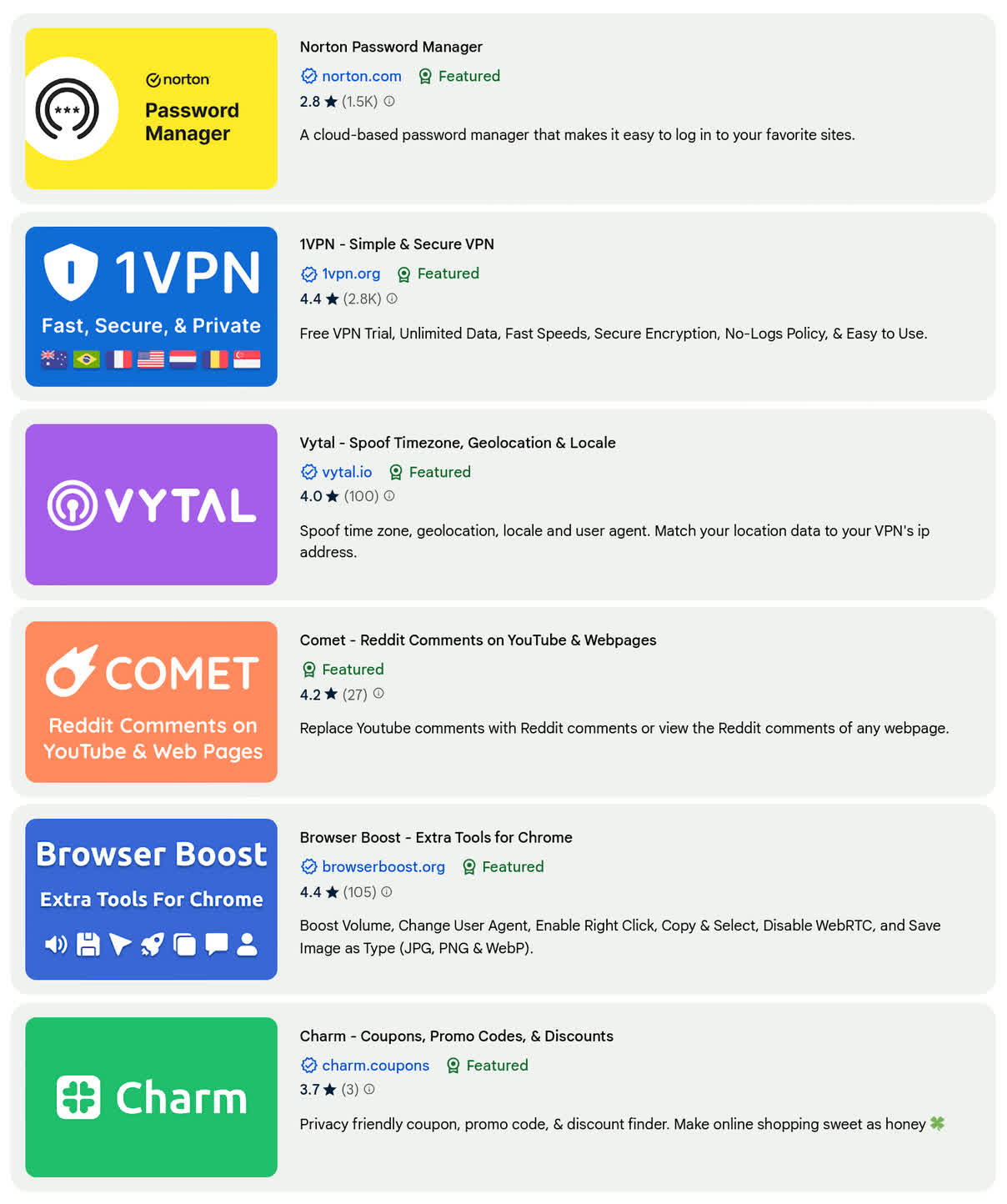Editor’s take: The Chrome Net Retailer gives quite a few instruments for extension builders to publish and promote their creations. Nevertheless, what it mustn’t allow is the misuse of those instruments to supply authors with manipulative ways that push extensions in sudden or inappropriate contexts.
Regardless of the compelled transition to Manifest V3, Chrome extensions stay as harmful and malicious as ever. Rogue builders can disguise their creations as professional extensions nonetheless utilizing the older Manifest V2 know-how or exploit Chrome Net Retailer’s translation system to seem in unrelated search outcomes by Chrome customers.
This newest tactic was lately found by safety researcher Wladimir Palant, who detailed his findings in an eye-opening put up. Whereas looking for the “Norton Password Supervisor” extension on the Chrome Net Retailer, Palant encountered quite a few seemingly unrelated outcomes. Upon investigating, he uncovered a intelligent manipulation marketing campaign actively pushing customers to put in low-quality and even malicious code.
The core problem recognized by Palant lies in how the Chrome Net Retailer manages translations and associated metadata. Official Chrome Net Retailer insurance policies explicitly prohibit search end result manipulation, but lots of of extensions are flagrantly violating these guidelines to safe undeserved visibility and promotion.

Some builders have found that the Chrome Net Retailer search index is shared throughout all languages, in accordance with Palant. This enables them to “sacrifice” descriptions in much less widespread languages by embedding them with keyword-packed textual content. When customers search the CWS, these key phrases enhance the visibility of malicious extensions, even when the extensions are programmed to carry out completely unrelated features.
Palant recognized 920 Chrome extensions exploiting this malicious approach to control CWS search outcomes. These extensions could be traced again to some “clusters,” suggesting they had been possible created by a small group of builders aware of the search manipulation trick.
The researcher reported this problem to Google, highlighting what seems to be a coordinated effort to control the Chrome Net Retailer search system. Palant famous that Google had already been alerted to key phrase spamming practices over a 12 months in the past, but the problematic extensions stay energetic. Both Google is not wanting, or they do not care in any respect, Palant mentioned.